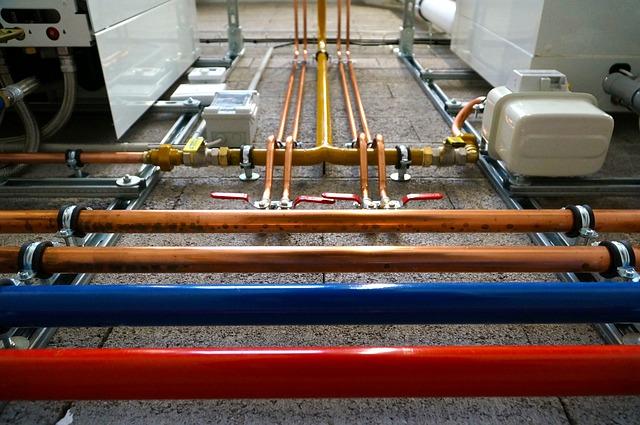Key Factors to Consider When Selecting Industrial Heaters for Your Facility
Are you struggling to find the perfect industrial heater for your facility? With a plethora of options available on the market, selecting the right heating system can be a daunting task. However, making the right choice is crucial to ensure optimal performance, energy efficiency, and a safe working environment. To help you navigate through the complexities, we've compiled a comprehensive guide on the key factors you need to consider when selecting industrial heaters. From understanding your specific heating requirements to evaluating different types of heaters and considering safety features, this article will provide you with valuable insights to make an informed decision. Let's dive in.
Understanding Your Facility's Heating Needs
Before selecting an industrial heater for your facility, it's crucial to have a clear understanding of your heating needs. Assessing your heat requirements involves evaluating factors such as the size of your facility, the ambient temperature, and the specific processes or applications that require heating. Additionally, considering the efficiency of the heater is essential to optimize energy usage and reduce operational costs.
By accurately assessing your facility's heating needs, you can determine the appropriate heating capacity, temperature control requirements, and distribution methods. This assessment forms the foundation for choosing the right industrial heater that will effectively meet your facility's heating demands while ensuring efficiency and cost-effectiveness.
Choose the Right Type of Industrial Heater
When it comes to industrial heaters, there are various types available, each with its own strengths and limitations. As highlighted by the team behind Cahill Heating, these types of heaters include electric heaters, gas-fired heaters, and oil-fired heaters. Conducting a comparative analysis of different heater types is crucial for making an informed decision.
Factors to consider include the specific heating requirements of your facility, the nature of the heating application, fuel sources, safety features, and maintenance needs. Comparing options such as electric heaters, gas heaters, infrared heaters, or steam boilers allows you to weigh their advantages and disadvantages against your unique needs.
By conducting a thorough comparative analysis, you can select the most suitable industrial heater type that will provide optimal performance, energy efficiency, and cost-effectiveness for your facility.
Evaluating Heating System Safety
Safety is of paramount importance when selecting industrial heaters for your facility. It is crucial to evaluate the safety features and reliability of the heating system to ensure the well-being of your employees and the protection of your facility. Factors to consider include built-in safety mechanisms, such as overheat protection, flame monitoring, and automatic shut-off features.
Additionally, assessing the heater's compliance with industry standards and certifications, as well as its track record for reliable performance, is vital. By prioritizing industrial heater reliability and safety, you can create a secure working environment while minimizing the risk of accidents or equipment failures that could disrupt operations and lead to costly downtime.
Consider Environmental Impact
In today's environmentally conscious world, considering the environmental impact of industrial heaters is crucial. Energy efficiency and sustainability play significant roles in reducing carbon emissions and minimizing resource consumption. When selecting industrial heaters, evaluate their energy efficiency ratings, such as the Annual Fuel Utilization Efficiency (AFUE) for gas heaters or the Coefficient of Performance (COP) for electric heaters.
Look for energy-saving features like programmable controls, variable speed fans, or modulating burners. Additionally, consider the heater's use of renewable energy sources or its compatibility with alternative fuels. By prioritizing energy efficiency and sustainability, you can contribute to a greener future while potentially reducing energy costs in your facility.
Maintenance and Longevity
Choosing industrial heaters that are easy to maintain and offer long-term durability is essential for minimizing downtime and maximizing productivity. Evaluate the maintenance requirements of different heater models, including filter cleaning or replacement, lubrication needs, and inspection schedules. Consider the availability of spare parts and the accessibility of components for repairs or replacements. Opt for heaters with a reputation for reliability and a track record of longevity.
Additionally, inquire about warranties, maintenance contracts, and technical support offered by manufacturers. By selecting industrial heaters with ease of service, you can ensure efficient operation, reduce maintenance costs, and extend the lifespan of your heating system.
Cost Analysis and Return on Investment
When selecting industrial heaters for your facility, conducting a thorough cost analysis and assessing the return on investment (ROI) is crucial. Consider the upfront costs of purchasing and installing the heater, as well as ongoing operational expenses such as energy consumption and maintenance. Evaluate the potential energy savings and efficiency gains that a particular heater can offer over its lifespan.
Factor in the expected lifespan of the heater and any potential cost savings from reduced downtime or improved productivity. By finding the optimal balance between upfront costs, operational expenses, and long-term ROI, you can make a financially sound decision that aligns with your facility's budget and goals.
Selecting the right industrial heater for your facility requires careful consideration of various key factors. Understanding your heating needs, comparing different heater types, prioritizing safety and reliability, considering environmental impact, evaluating maintenance requirements, and conducting a cost analysis are all crucial steps. By taking these factors into account, you can make an informed decision that ensures efficient and sustainable heating while maximizing the longevity and performance of your industrial heater. Remember, investing time and effort in the selection process will pay off in terms of improved productivity, reduced costs, and a comfortable and safe working environment.

